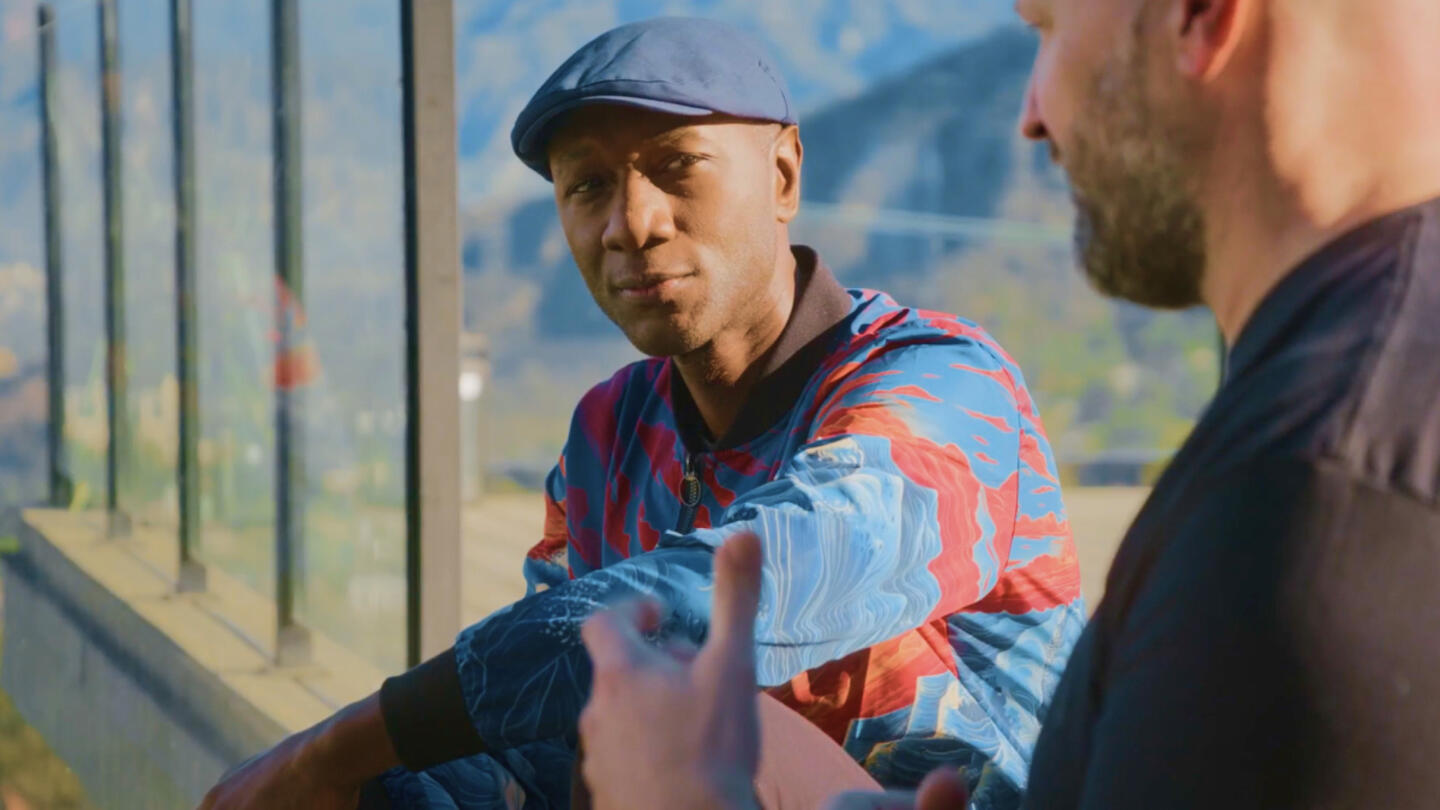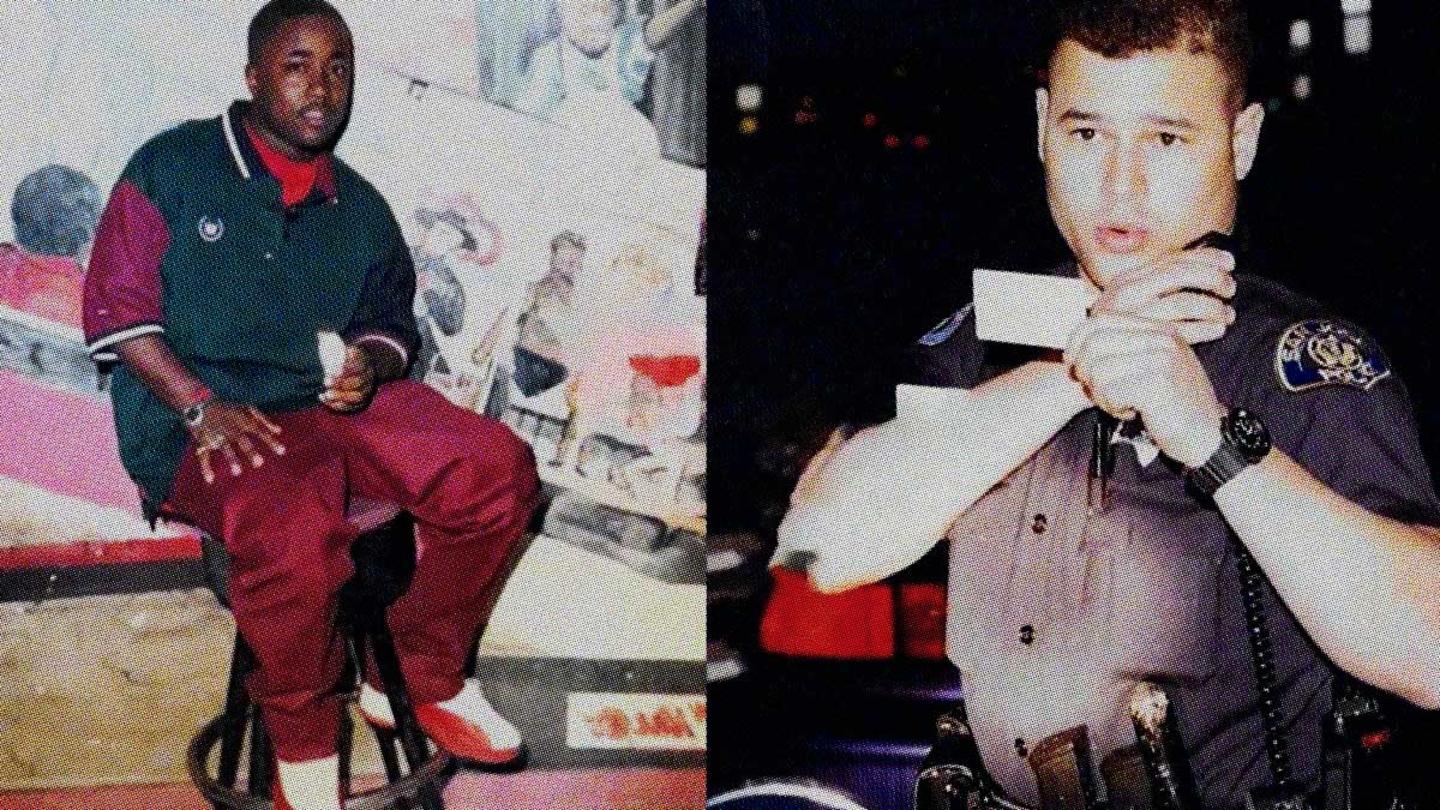At first glance, Antong Lucky and Eddie Garcia shouldn’t be friends.
Lucky is the former leader of the Bloods gang in Dallas. “From the age of 13, I had a bad idea of the police,” he describes. “They come into our community saying, ‘Our job is to manage, is to suppress, is to arrest.’ They come in with that mentality.”
Eddie Garcia, on the other hand, is chief of police in Dallas. For years, he has grappled with a nationwide plummet in trust of police following the 2020 murder of George Floyd.
Though they didn’t know it, their causes were deeply intertwined. They both wanted to solve the issue of violence in the city. But to understand the common ground between them, they first had to come together and have a difficult discussion.
“If you really want to solve violence in the community, you have to bring everyone to the table, and build trust between law enforcement and the community,” Lucky says.
Lucky and Garcia prepared to meet and attempt to bridge a decades-long divide. The task ahead seemed daunting: How could they build the trust that would make their community safer?
“The slightest twist and turn could blow this up — could kill everything we were building up to,” Lucky says.
Urban Specialists and the Dallas police bridge divides
Garcia and Lucky’s backgrounds could not have been more different.
“I call myself a blue-collar chief,” Garcia describes. “I didn’t go to a lot of fancy schools. I learned from being out on the street and doing the job.”
Lucky grew up in East Dallas in a neighborhood where violence and poverty are a way of life. A combination of bad circumstances and bad decisions pulled him into that life, and he was eventually arrested and served three and a half years in prison.
Once released, he dedicated himself to stopping gang violence by joining the organization Urban Specialists, which he now leads.
Urban Specialists brings early intervention programs to at-risk youth and meets those already caught up in violent crime from a place of empathy. Its methods work: they even achieved bringing about a historic gang truce between the Dallas Bloods and Crips.
“I wanted to come back and help my neighborhood,” he says.
By 2019, violent crime was on the rise, though, and it was still trending higher when Garcia became Police Chief in 2021.
“We’re not going to arrest our way into a safer Dallas,” Garcia remembers thinking. “Officers go to their corner, the community goes to their corner, and there’s no one in the middle keeping our community safe. We can’t do this on our own.”
Lucky had come to a similar conclusion himself. “We have to begin eroding those walls that prevent trust between law enforcement and the community,” Lucky says. “So we had to make a critical decision.”
That meant walking with his fellow Urban Specialists straight into a place they had hardly ever felt welcome: the Dallas police department. For many in Lucky’s camp, this was the first interaction with the police that wouldn’t end in someone going to jail.
Lucky, Garcia, and their colleagues sat across from each other, uncomfortable at first. Then Lucky spoke first, and broke the ice.
“Lawlessness, no matter where it’s found, cannot be tolerated,” he said. “Whether it’s an officer with a gun and a badge, or a gang member with a gun and a rag, we have to hold them accountable.”
“From there, I was all ears to what he had to say,” says Garcia.
Sign up for the Strong & Safe Communities newsletter for stories, ideas, and advice from changemakers working with their neighbors to address the biggest problems we face.
Tackling the crime rate in Dallas
Both sides of the table quickly realized that they were after the same thing: fairness, justice, and accountability — not just for one side, but for the community and law enforcement alike.
Garcia and Lucky began visiting prisons and speaking with individuals on the cusp of release. They partnered up to offer a coalition of services to assist incarcerated individuals with reentering their communities. By creating resources and a support system, they could decrease these individuals’ likelihood of falling back into crime for survival.
Garcia and Lucky stood next to each other in front of these groups as “co-signers” of their joint mission. Whereas formerly, these two individuals would have been opposed, they now offered a powerful visual of the union that was possible.
The Dallas Police Department and Urban Specialists continue to work together, providing resources to formerly incarcerated individuals and building trust between law enforcement and local neighborhoods. This allows community members and law enforcement to both see the humanity of each other.
“That’s the only thing that can solve the problem of violence in those communities,” Lucky says.
Now, law enforcement isn’t just known to communities as those who come during a violent crisis. They’re partners, there in both good times and bad.
By the end of 2022, Dallas was the only city in the top-ten most populous cities in the U.S. to see a decrease in crime rates. Lucky and Garcia are now working to spread their model to other cities across the country.
It’s a lofty goal, but it starts with the most simple solution: sitting down face to face, and having an honest conversation.
“Having these kinds of conversations, it’s uncomfortable,” Lucky says. “They don’t feel good. It’s laced with biases. But until we say it, until we reveal it, then we can heal it.”
***
Urban Specialists is supported by Stand Together Foundation, which partners with more than 300 of the most transformative nonprofits in communities across the country.
Learn more about Stand Together’s criminal justice efforts, and explore ways you can partner with us.

At this ‘resort,’ children with intellectual disabilities are seen as gifts to be celebrated and loved.

Veterans experience loss when leaving service. Could this be key to understanding their mental health?

The Grammy-nominated artist is highlighting the stories we don’t get to hear every day.

With his latest project, Blacc isn’t just amplifying stories — he’s stepping into them
